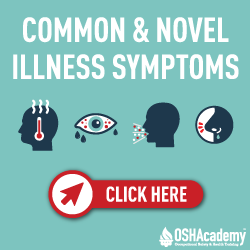Symptoms
Symptoms are indications of a disorder or illness. Each infectious disease has its own specific signs and symptoms. There are general signs and symptoms common to many types of infectious diseases.
Common signs and symptoms of infectious diseases include:
- fever
- sore throat
- fatigue
- body ache
- coughing
- diarrhea
Common infectious diseases and their symptoms:
- Common Cold: Runny nose, sore throat, sneezing, coughing, headaches, and body aches.
- Influenza (flu): Fever, cough, sore throat, runny or stuffy nose, muscle or body aches, headaches, fatigue, vomiting, and diarrhea.
- Coronavirus 2019 (COVID-19): Fever, headache, sudden loss of smell or taste, fatigue/weakness, runny/stuffy nose, sneezing, itchy/watery eyes, diarrhea, general aches/pains, sore throat, dry cough, and shortness of breath.
- Strep Throat: Sore throat, pain when swallowing, fever, red and swollen tonsils, and swollen lymph nodes in the front of the neck.
- E. coli: Severe stomach cramps, diarrhea, vomiting, and fever.
- Salmonella: Diarrhea, vomiting, nausea, stomach pain, fever, headache, and body aches.
Note: Do not use online information to self-diagnose.
When to See a Doctor
Seek medical attention if you have:
- trouble breathing
- been coughing for more than a week
- a severe headache with fever
- an unexplained or prolonged fever
- sudden vision problems
- sudden weakness or unsteadiness
Knowledge Check Choose the best answer for the question.
2-4. Which of the following is a common symptom of infectious diseases?
You forgot to answer the question!

